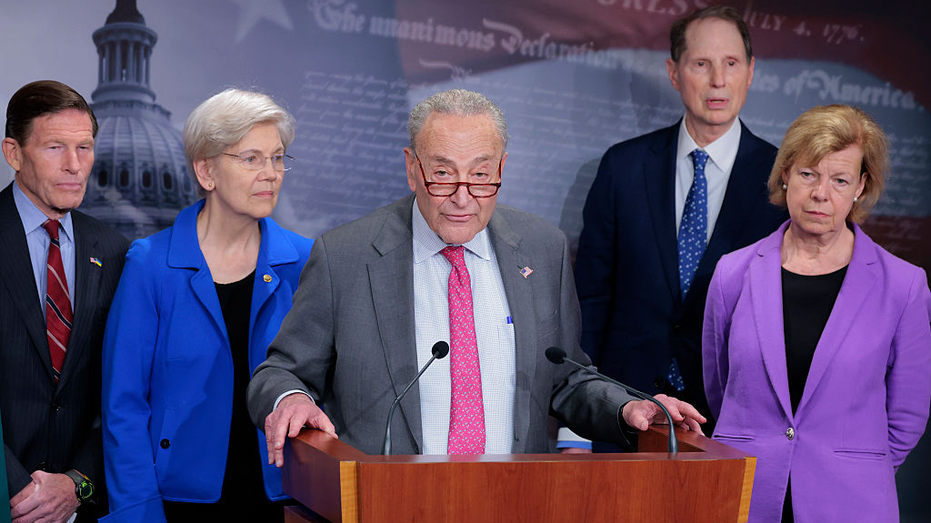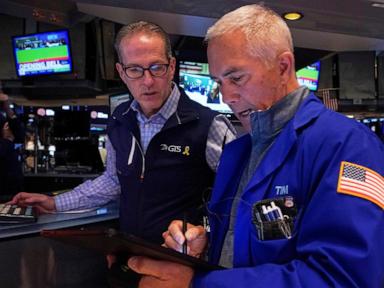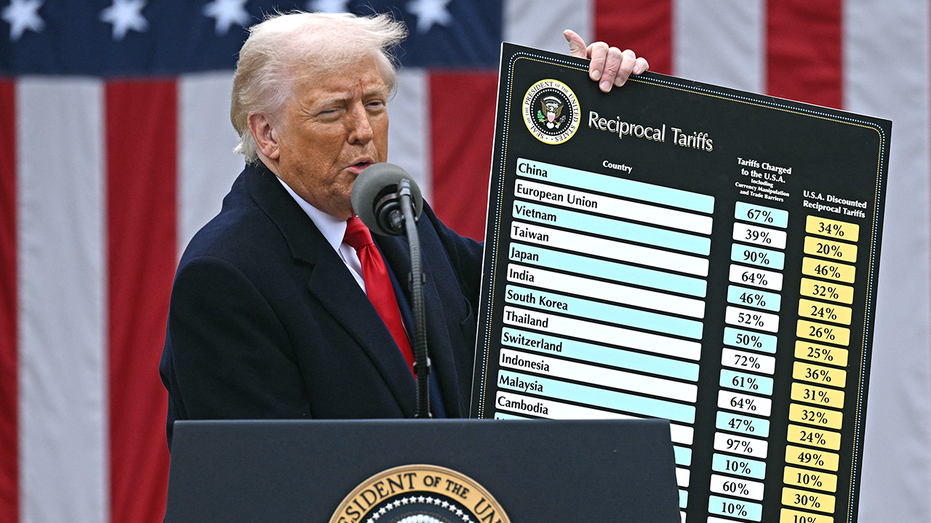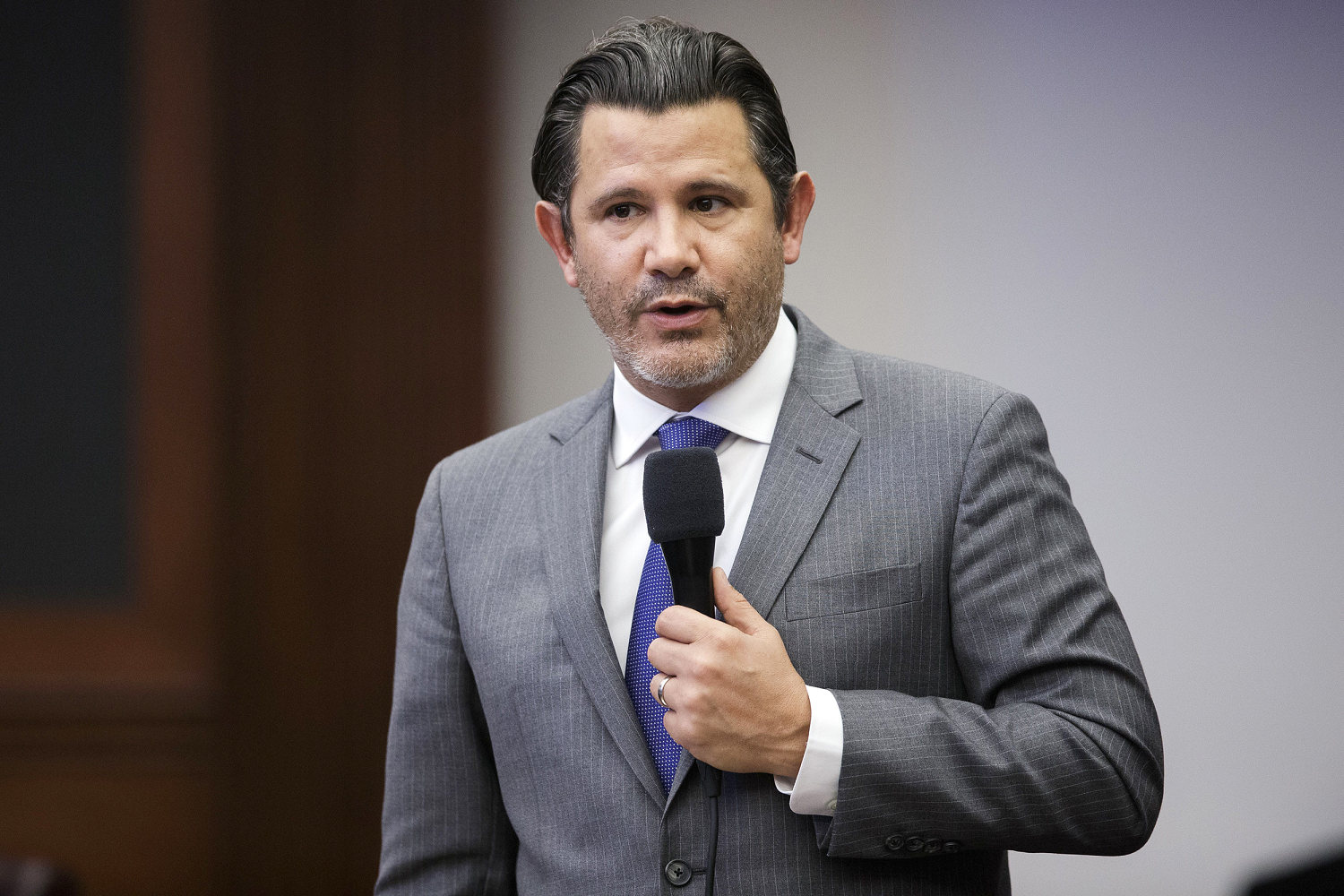The nation’s top cattle industry leader sounded the alarm Tuesday that a flesh-eating fly infestation advancing through Mexico remains a dire threat to U.S. ranchers, even as the Trump administration claimed a key victory in efforts to stop it.
Buck Wehrbein, president of the National Cattlemen’s Beef Association (NCBA) and a cattle feeder from eastern Nebraska, praised Agriculture Secretary Brooke Rollins for taking aggressive action against the outbreak of the New World screwworm, a parasitic fly whose larvae can burrow into the flesh of livestock and often cause fatal wounds.
But Wehrbein warned that with just one day left before a U.S. ultimatum expires, "the crisis is far from over" and American cattle herds remain in jeopardy.
"If this screwworm crosses into the United States, it could devastate our industry," Wehrbein told Fox News Digital in an exclusive interview.
USDA THREATENS TO HALT MEXICAN BEEF IMPORTS OVER FLESH-EATING FLY CRISIS'
"These parasites literally eat livestock alive. We eradicated them from the U.S. in the 1960s, and we’re not about to let them take hold here again."
Wehrbein noted that the U.S. government spent millions of dollars to wipe out New World screwworm decades ago – only for the pest to reemerge in Central America and begin creeping northward toward Texas.
The screwworm was first detected in southern Mexico late last year, prompting U.S. authorities to scramble resources to contain it. The USDA temporarily halted imports of Mexican cattle from late November until February after a screwworm case surfaced in Chiapas, underscoring how seriously officials view the threat to America’s food supply.
MAINE'S FEDERAL FUNDING FREEZE FROM TRUMP'S USDA REVERSED
Now, U.S. agriculture officials are racing to build a final barrier against the flesh-eating fly before it reaches the border. For decades, the United States and Mexico have relied on a sophisticated sterile insect technique (SIT) program, using aircraft to release millions of sterile male flies to keep screwworm populations in check. But that strategy was recently thrown into chaos amid bureaucratic interference by Mexican authorities, who U.S. officials say blocked and delayed critical fly-release missions just as the outbreak intensified.
According to the USDA and cattle industry representatives, Mexico "failed to uphold their end" of the bi-national eradication effort by refusing landing permissions, charging import duties on U.S.-funded equipment and limiting fly drops to six days a week, conditions that officials say allowed the pest to spread further.
Wehrbein did not hide his frustration.
"We were pulling our hair out," he said. "The science is there to stop this bug, but not if the planes are grounded over paperwork. Every day of delay gave the screwworm a bigger foothold."
In an April 26 letter obtained by Fox News Digital, Secretary Rollins gave Mexico an April 30 deadline to resolve the issues or face a halt in the import of live cattle, bison and equine, a move that would strike a blow to Mexico’s ranching economy and tighten U.S. supply chains already under pressure.
"It certainly got their attention," Wehrbein noted. "No one wants to shut down trade. That’s a last resort that would hurt producers on both sides. But Secretary Rollins and President Trump made it crystal clear that protecting America’s herds comes first."
Wehrbein said the NCBA met with senior Mexican embassy officials in Washington last week to emphasize the urgency.
"Ranchers in Mexico and the U.S. are on the same side here. We need this pest stopped," Wehrbein said. "It shouldn’t take high-level threats to get commonsense cooperation."
On Tuesday, Rollins posted on X that Mexico has agreed to allow U.S. sterile fly planes to land, calling it "a HUGE win for our American ranchers!"
Fox News Digital has reached out to Secretary Rollins’ office for further details and confirmation but has not yet received a response.
Wehrbein welcomed the announcement, saying it marked a turning point, but not the end of the threat.
"Getting those fly planes back in the air is absolutely critical. It’s a relief to see Mexico finally do the right thing," he said. "Frankly, it should never have taken this long. But at least now we have a fighting chance to contain the outbreak before it reaches our border."
While the flight permissions appear to have been restored, it remains unclear whether Mexico will waive the import duties or allow seven-day operations, both of which the USDA had demanded. Rollins has also called for a senior liaison from the Mexican government to ensure faster coordination moving forward.
Longer term, Wehrbein said the U.S. needs to reconsider how much it relies on outside partners for biosecurity.
"This situation shows why we need our own domestic supply of sterile flies," he said. "If we had a facility here at home cranking them out, we wouldn’t be at the mercy of another country’s cooperation."
A veteran of the cattle industry, Wehrbein was raised on a farm in eastern Nebraska and spent years working in Texas commercial cattle feeding. He now operates a feedlot just outside Omaha and has served in leadership roles at both the state and national level. This year, he was elected president of the NCBA, the country’s largest and oldest organization representing cattle producers, and has become the group’s key voice in Washington.
CLICK HERE TO GET THE FOX NEWS APP
"We love this industry. We’re proud to feed the country and the world," Wehrbein said. "But it takes vigilance, cooperation and leadership to protect it. The screwworm is a reminder that we’re always one outbreak away from disaster, and we’ve got to stay ahead of it."
Fox News Digital’s Bill Melugin contributed to this report.
.png)
 2 hours ago
3
2 hours ago
3















 English (US)
English (US)